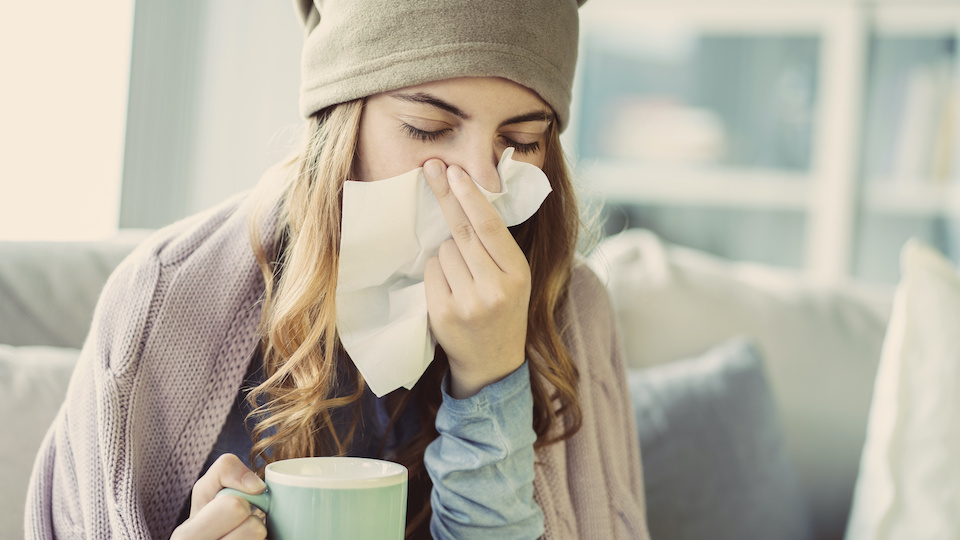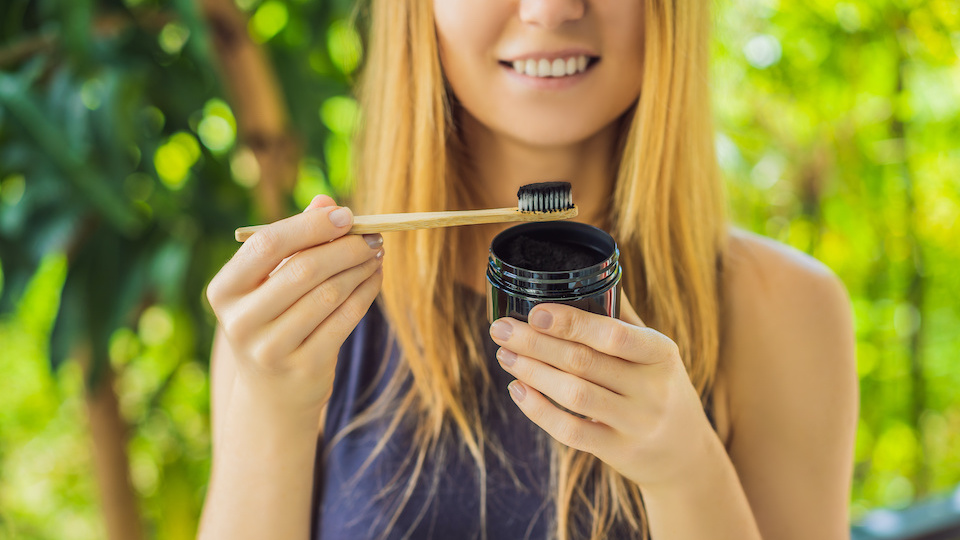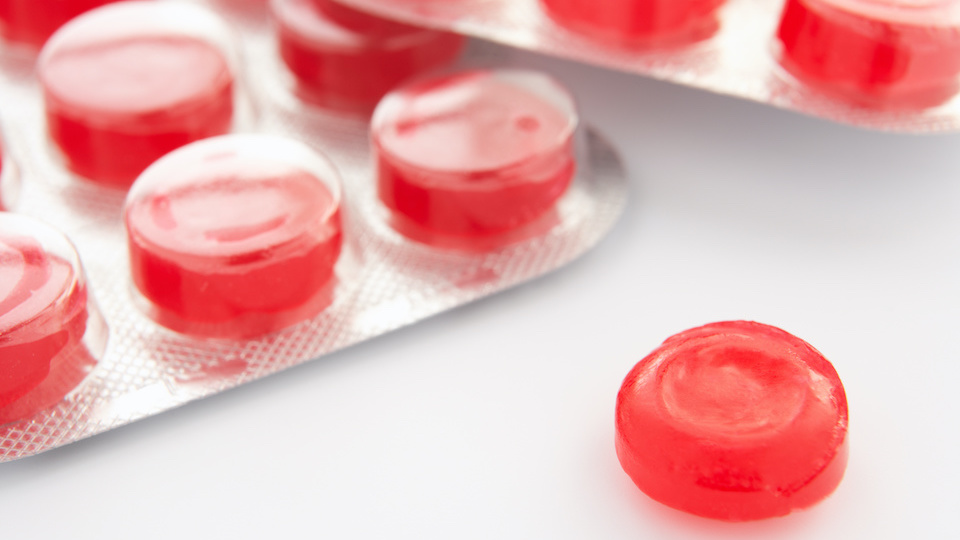It happens to the best of us…you have that delicious caesar salad at lunch without sparing a thought for the meeting coming up in the afternoon. You pop a breath mint, but you’re still paranoid that your breath reeks like garlic, and you spend the rest of the day trying not to talk directly toward anyone. Bad breath is a social faux-pas that is best avoided. Typically, the first line of defense against offensive breath is your trusty toothbrush; brushing your teeth at least twice a day is recommended to keep your mouth clean and your breath fresh. But what if you’ve brushed your teeth and the problem persists?
These surprising things could be causing your bad breath.
Turns out, there a few surprising things that could be behind that stubborn bad breath even after you’ve brushed your teeth.
Your period
As if the monthly visit weren’t bad enough, you could also end up with bad breath for a week or so. Studies have reported that women are more prone to halitosis in the days leading up to and during their period due to hormonal changes. Maybe it’s for the best that people stay at a safe distance while you’re PMSing?
Breathing through your mouth
Saliva is necessary for oral health because it helps to cleanse your mouth by neutralizing acids and washing away odor-causing particles. If saliva isn’t present, it can cause bad breath, and breathing through your mouth can make this problem worse. If you suspect your bad breath may be the result of a dry mouth, make an effort to drink more water throughout the day, and be sure to breathe through your nose whenever possible.
Your dentures
Another cause of bad breath after brushing could be a poorly fitting dental appliance. Braces, retainers or dentures that don’t fit properly or aren’t cleaned regularly can harbor food particles and bacteria, which can result in some pretty disgusting odors. Talk to your dentist about how to clean your dental appliance and whether the fit needs to be adjusted.
Mouthwash
According to those ads on TV, mouthwash is the answer for every-lasting fresh breath. What many people don’t know is that alcohol, including the type found in many brands of mouthwash, actually dries out your mouth, leading to bad breath. Choose an alcohol-free mouthwash for longer-lasting minty freshness.
A lack of flossing
While many of us might think that flossing is a “bonus” activity we can do once in a while, you should actually be flossing every time you brush, or at least once per day. Skipping the floss can make your breath smell because plaque and bacteria accumulate on and between your teeth. Food that’s not removed by flossing stays between your teeth, causing your breath to smell unpleasant.
Your tongue
You probably brushed your teeth this morning, but what about your tongue? That bumpy surface can harbor some serious odor-causing bacteria. To remove any residue that may be building up on your tongue, look for an inexpensive tool called a tongue scraper at the drugstore, or simply use your toothbrush to give your tongue a good scrub each time you brush.
Being hungry
An empty stomach can cause foul breath as acids in the stomach build up. Munch on a carrot, a stick of celery or an apple to increase saliva flow that will help wash away bacteria and alleviate bad breath caused by hunger or fasting.
While a smelly mouth could be circumstantial, as described above, it could also be a sign of more serious disease in your body. The following illnesses could be the surprising cause of your persistent bad breath.
Tonsillitis
Bad breath can occur in acute, chronic, and recurrent forms of tonsillitis. If you also experience a sore throat, earache, and swollen glands on the sides of your neck, ask your doctor to perform a swab to check if you have a viral or bacterial infection. Gargling with warm salt water can help clear the tonsils of anything abnormal, whether it be illness or even smelly old food debris that could be stuck in the folds of the glands.
Sinus infection
Sinus and respiratory infections can cause your breath to smell like, well…poop. These infections can be caused by bronchitis, viral colds, strep throat, and more. When bacteria move from your nose into your throat, it can cause your breath to have an incredibly unpleasant odor. Using a neti pot may help flush out your sinuses and discourage infections and buildup in this area.
Digestive problems
Issues with the digestive system are a common cause of bad breath. Any condition that allows air from the stomach to move up into the esophagus and the oral cavity may cause halitosis. This includes reflux or GERD, bloating, gas, IBS, constipation, or food intolerances. When your body is not digesting food properly, the system ‘backs up,’ and those foul odors may, unfortunately, make an appearance in your mouth. Talk to your trusted practitioner about addressing any underlying digestive issues, and you will likely find that your breath freshens up naturally.
Gum disease
Even if you are brushing regularly, food particles may be left behind, and the proteins putrefy. Persistent bad breath or a bad taste in the mouth may be a warning sign of gum disease. The toxins which arise from rotting food and bacteria irritate the gums and, not surprisingly, make your mouth smell foul. If gum disease continues untreated, it can damage the gums and jawbone. Talk to your dentist about treatment that can address gum disease.
There are several other serious conditions that could be hiding behind bad breath; for example, liver failure produces a musty odor, kidney problems can result in a urine-like smell, and severe diabetes can produce a fruity smell like acetone. Lung abscesses can also produce a foul odor. These odors are distinct enough that doctors used to smell their patients’ breath as an important step in diagnosing disease. Although it may be embarrassing, ask a friend or family member if they have noticed anything about your breath and talk to your doctor if you’re concerned.
Solutions For Chronic Bad Breath
If you don’t think your smelly mouth means anything serious, but you would like to balance your system for fresher breath, try using supplements such as probiotics, digestive enzymes, cod liver oil, and magnesium to support digestion and immunity. When your gut and immune system are working as they should, bad breath should take care of itself. In the meantime, keep a pack of xylitol gum on hand and avoid the raw onions at the salad bar.
-The UpWellness Team









